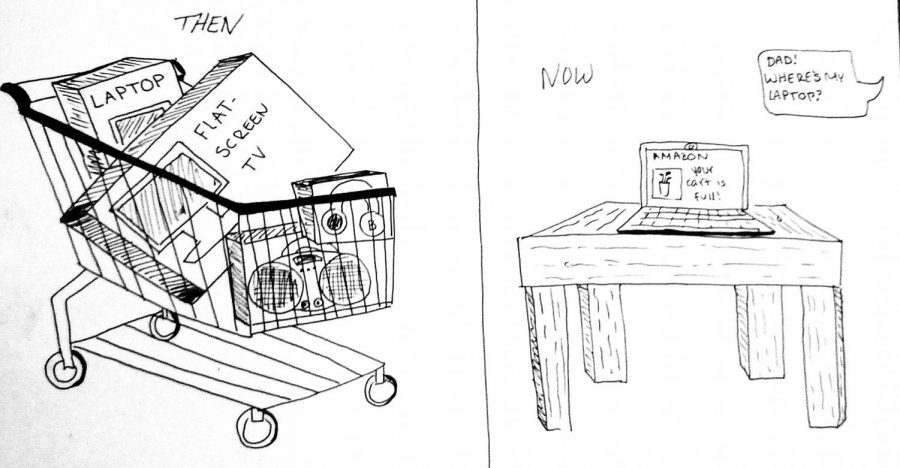As the holiday season approaches, everyone prepares themselves for decorating trees, drinking eggnog and building snowmen.
While most people would normally spend hours scrambling through mall kiosks after finally finding parking, a large group of people, mainly comprised of millennials, has switched over their shopping habits to the web.
Online shopping has been a growing industry for years and shows no sign of slowing down. With Amazon Prime, customers can browse a nearly infinite catalogue of competitively priced products and have them delivered to their home within 48 hours for free.
It’s an experience that challenges the “convenience” of the convenience store while bringing about a buffet of benefits that storefronts can’t offer.
I personally have an overwhelming trust of the Amazon review system, and consistently hunt for the elusive five-star
product. In addition, in an era where everyone has everything and gift giving is difficult, online shopping offers easy access to the most unique and obscure items.
It has never been as easy to get a personal gift as it is now.
Although it may seem nearly utopian, online shopping does come with flaws. While larger websites generally offer reasonable shipping charges and speeds, small e-commerce stores are often both costly and slow. Also, online shopping is fairly antisocial, and cuts back on time spent bargain chasing with friends.
At the same time, while e-commerce success usually means greater efficiency for a business, it also means less retail jobs, jobs that are key to a large demographic of students and other inexperienced workers.
Outside of all of the positive and negative impacts I’ve mentioned, there are dozens more. The rapid abandonment of Blockbuster for Netflix is one of many drastic results, and there are certainly more to come.
The best actions that you can take to shape our future marketplace is to simply support the stores that you value most and be aware of how this evolution might affect you.










